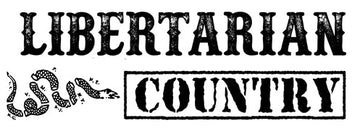When you bring up the name Breitbart in political conversation, you instantly conjure strong reactions. To the Left, it’s a hotbed of far-right extremism, a propaganda machine, and a digital megaphone for populist nationalism. To many on the Right, it’s a rallying point—a conservative outlet unafraid to say the things “the mainstream media won’t.”
But for libertarians, Breitbart is neither friend nor foe—it’s a useful case study. A reminder that just because an outlet rails against progressives and Big Government doesn’t mean it’s aligned with the libertarian cause of individual liberty.
The libertarian perspective on Breitbart is less about cheerleading or demonizing, and more about dissecting: Where do they speak truth to power, and where do they fall prey to the same tribalism they claim to fight?
Where Breitbart Resonates with Libertarians
There are places where Breitbart’s firebrand tone overlaps with libertarian values:
-
Anti-Establishment Energy: Breitbart, at its best, channels distrust of elite institutions. Libertarians share that skepticism—whether it’s the corporate media, entrenched political dynasties, or bureaucratic overreach.
-
Criticism of the Left’s Authoritarianism: When Breitbart highlights the absurdities of cancel culture, speech policing, or heavy-handed state regulation, libertarians nod along. Freedom of expression and resistance to top-down social engineering are core libertarian values.
-
Cultural Contrarianism: Libertarians, like Breitbart readers, often enjoy puncturing progressive pieties. There’s a certain delight in reminding people that liberty doesn’t always look like their approved scripts.
In these moments, Breitbart acts almost like a blunt instrument of rebellion. Libertarians can appreciate the energy, even if they don’t endorse the direction.
Where Breitbart Misses the Mark for Libertarians
But libertarians can’t stop at agreement when the outlet’s philosophy veers off course:
-
Nationalism vs. Individualism: Breitbart often frames issues through the lens of nationalism—“America First,” closed borders, protectionist economics. Libertarians argue that liberty doesn’t stop at the border. Free trade, open exchange, and voluntary cooperation aren’t just slogans; they’re essential to prosperity.
-
Big Government When Convenient: While Breitbart rails against government overreach on taxes or gun control, it frequently cheers for government power when wielded toward its preferred outcomes: policing morality, regulating immigration, or using state force to shape culture. Libertarians see this as hypocrisy—big government dressed in red instead of blue.
-
Populist Pandering: Libertarians distrust the populist habit of scapegoating. Whether it’s “the immigrants,” “the globalists,” or “the elites,” populism substitutes slogans for solutions. Breitbart thrives on this rhetoric, but libertarians see it as another way of dodging responsibility and shrinking the scope of liberty.
Breitbart as a Symptom, Not a Solution
From a libertarian lens, Breitbart is not the disease—it’s the symptom. It exists because millions of Americans feel ignored, betrayed, or mocked by cultural elites and political institutions. Libertarians sympathize with that anger. But anger alone doesn’t create liberty.
Liberty requires consistency: the same principles applied no matter who holds the reins of power. Breitbart thrives on “owning the libs,” but it doesn’t hold its own side accountable with equal vigor. Libertarians insist that both the Left and the Right must be checked—because power corrupts no matter whose flag it waves.
Is Breitbart Libertarian?
In a word: no. While Breitbart may share some overlap with libertarian critiques of the Left — particularly when it comes to speech policing, government overreach, and cultural authoritarianism — its worldview is not grounded in libertarian principles.
Libertarianism is about individual freedom across the board: free trade, free expression, open markets, voluntary cooperation, and minimal government interference in both economic and personal life. Breitbart, by contrast, often takes a nationalist-populist stance — supporting protectionism, strong borders, and government intervention when it suits conservative cultural goals.
This doesn’t make Breitbart “the enemy,” but it does make it a fundamentally different ideology. Libertarians may laugh at its mockery of progressives, but we can’t mistake Breitbart’s brand of conservatism for authentic liberty. Where libertarians want less government, Breitbart frequently cheers for government power wielded differently.
Is Breitbart Left or Right?
Breitbart is firmly on the political Right. Its content and tone are consistently aligned with nationalist, populist, and conservative movements. While the outlet positions itself as anti-establishment, its worldview is far closer to Republican populism than libertarianism.
What Is Breitbart’s Political Bias?
Breitbart’s political bias is right-wing populist conservatism. The site is openly partisan, frequently framing stories in ways that attack the Left and defend cultural conservatism. Unlike libertarians, who apply principles consistently across all issues, Breitbart tends to favor government power when it supports conservative goals, such as stricter immigration controls or trade protectionism.
Why Do Some Libertarians Agree with Breitbart?
Libertarians sometimes nod along with Breitbart when it pushes back against cancel culture, censorship, or progressive overreach. But agreement on one battlefield does not mean alignment on the whole war. Breitbart remains nationalist and tribal, while libertarians are committed to universal liberty.
Conclusion: Libertarian Takeaway
Breitbart will never be a libertarian outlet, and libertarians shouldn’t expect it to be. Its purpose is partisan combat, not principled liberty. That doesn’t mean it can’t be a useful ally in exposing the overreach of progressives, but it also means libertarians must remain wary.
The libertarian perspective is simple: appreciate the moments of truth, reject the tribalism, and stay rooted in principle. Breitbart may be a loud voice in the culture war, but the libertarian project is larger, deeper, and ultimately aimed not at replacing one ruling faction with another—but at removing the throne altogether.



